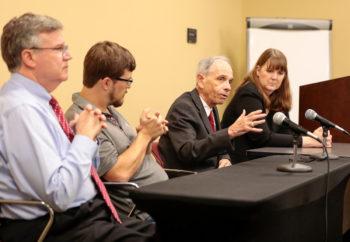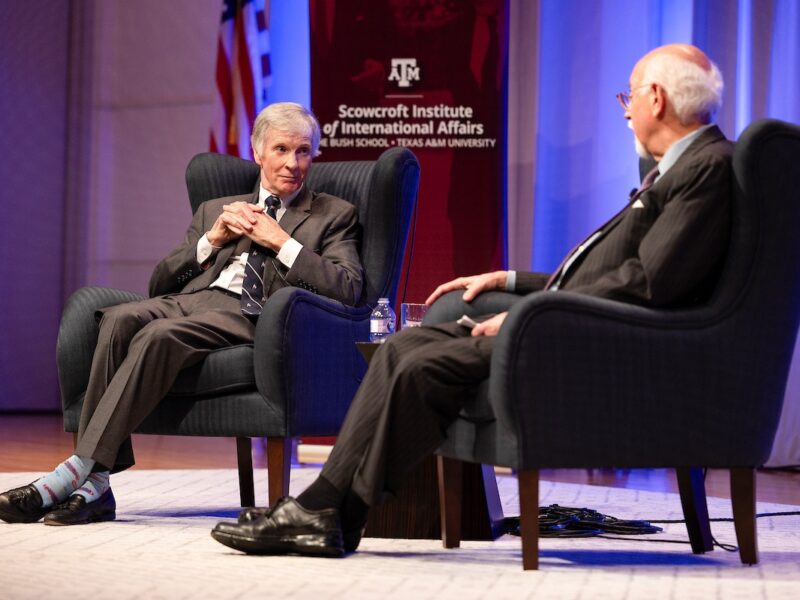Political Experts Discuss Possible Impeachment of President Trump

As impeachment proceedings move forward, there is an unclear picture of what might happen to President Donald Trump as the process unfolds, said three political experts during a Texas A&M University forum Monday night in Rudder Auditorium.
The politics of impeachment were discussed as part of the Bush School of Government and Public Service’s “What’s Next” series.
The panel included Ambassador Larry Napper, former U.S. ambassador to Latvia and Kazakhstan; Justin Bullock, assistant professor; and Gregory Gause, head of the Department of International Affairs. Lori Taylor, head of the Public Service and Administration Department, served as moderator.
Gause said that generally speaking, impeachment does not affect a president’s ability to conduct foreign policy, but it does affect the choices he makes in foreign policy decisions.
He gave the example of Richard Nixon, who was in the middle of the Watergate scandal in 1973. Nixon fired special Watergate prosecutor Archibald Cox, Gause said, and on the same day “he raised the alert level of our armed forces to one step below nuclear war. The Arab-Israeli war was going on then and tensions were very high.”
“Also, Bill Clinton bombed Iraq on the same day he was impeached,” Gause added, citing those two incidents of a president making key foreign policy decisions while facing impeachment.
The panelists reminded listeners that only two presidents have been impeached – Andrew Johnson in 1868 and Clinton in 1998, but neither man was convicted by a Senate vote. Nixon resigned in 1974 before he was almost certain to face impeachment charges.
Bullock said that 20 non-Democratic Senators would need to vote to remove Trump from office, and that is unlikely to occur.
“But the latest polls show that about 51 percent of Americans favor impeachment,” Bullock said. “Bill Clinton emerged from impeachment as a very strong leader and he still had high popularity ratings even after he was impeached,” showing that impeachment does not always get the desired results of those seeking it.
Napper said the impeachment process is a risky process for both Democrats and Republicans.
“It mobilizes the Democrats and unifies them,” Napper said. “But Republicans can always come back and say, ‘He was not removed from office, so was all of this just a big charade?’”
The panelists said a president can only face impeachment if he is facing the charges of treason, bribery, or high crimes and misdemeanors. When Nixon resigned in 1974 before facing impeachment, he was later given a full pardon by President Gerald Ford, and “there’s no doubt it cost him the election when he ran against Jimmy Carter in 1976,” the panelists agreed.
Media contact: Keith Randall, 979-845-4644, keith-randall@tamu.edu.





